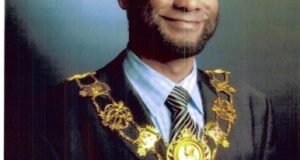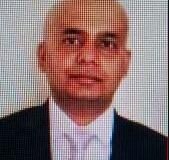
Rayhan Ahmed Topader:
The untrammelled exercise of power, without legal, political or moral restraint is the bane of many countries across Africa. That is why the abuse of power tends to manifest itself in a more grimly way amongst our peoples. It is not that politicians in other societies are not wilful or whimsical, but there are other institutions that can checkmate them or restrain them and control their excesses. These will include the formal separation of powers between the Executive, Judiciary and Legislative functions. But outside of that are other autonomous and independent institutions and organisations that offer alternative centres of power and consensus building on values and goals of their society. They include vibrant political parties whether in government or opposition, independent media, religious institutions, academia and intelligentsia and above all an active citizenship including vocal public figures and dynamic civil society organisations at various levels in the society. All these will make varying claims on a democratic system that often restrain and engage with those in power.
Sudanese sources told Reuters Bashir, 75, was deposed by the army and was at the presidential residence under heavy guard.
The military will make an announcement soon, state television said, as troops deployed around the defence ministry and on major roads and bridges in the capital.
Government sources and the minister of production and economic resources in North Darfur, Adel Mahjoub Hussein, told Dubai-based al-Hadath TV that Bashir had stepped down and consultations were taking place to form a ruling military council. Soldiers stormed the headquarters of Bashir’s Islamic Movement, the main component of the ruling National Congress Party, a Reuters witness said. Thousands of people flocked to an anti-government protest outside the defence ministry, while huge crowds took to the streets in central Khartoum, dancing and chanting anti-Bashir slogans. One protester, speaking to Arabiya TV, said reports were circulating that Bashir’s deputy and Defence Minister Awad Mohamed Ahmed Ibn Auf would replace him, but this was unacceptable to the demonstra tors. He has been indicted by the International Criminal Court in The Hague and is facing an arrest warrant over allegations of genocide in Sudan’s Darfur region during an insurgency that began in 2003 and led to death of an estimated 300,000 people.Bashir, a former paratrooper who seized power in a bloodless coup in 1989, has been a divisive figure who has managed his way through one internal crisis after another while withstanding attempts by the West to weaken him. Sudan has suffered prolonged periods of isolation since 1993, when the United States added Bashir’s government to its list of terrorism sponsors for harbouring Islamist militants.
Washington followed up with sanctions four years later. We expect good news, joyful news that we have awaited for 30 years, demonstra tor Nadine Ala al-Din said. Mohamed Adam, 44, said: We will not accept Bashir’s aides as part of the new situation. Those people have killed protesters. Kamal Omar, a 38-year-old doctor, said a military government would not be acceptable. We will continue our sit-in until we prevail. State television and radio played patriotic music, reminding older Sudanese of how military takeovers unfolded during previous episodes of civil unrest. The head
of the United Nations-African Union peacekeeping mission in Sudan’s Darfur told the UN Security Council yesterday that violence is on the rise in the region after the Sudanese army ousted President Omar al-Bashir. Security across the volatile Darfur region of Sudan has deteriorated since last week’s military takeover in Khartoum,
Jeremiah Mamabolo, joint special representa tive for the UN-African Union Hybrid Operation in Darfur (Unamid), was reported as saying by Xinhua. The peacekeeping mission in Darfur has remained vigilant” in the face of rising violence, he stressed. Mamabolo said that with one army general already forced out of office in the face of continuing protests, the daily curfew has now been lifted, and political detainees are due to be released, with a nationwide ceasefire now in place.
The chief justice and the attorney-general were replaced, he said, adding that the new military leader. Abdel-Fattah Al-Burhan, had announced a military transitional phase, which would last two years at most, before a handover to civilian control. But protests are continuing, Mamabolo said, noting that some internally-displaced people in Darfur, where military action by the former president against civilians led to war crimes charges against him by the International Criminal Court a decade ago, had “engaged in violent acts” targeting government locations, and those seen as collaborators with the former regime. Let me assure the council that in the midst of all these developments, Unamid has remained vigilant, maintaining a robust posture, particularly in the Jebel Marra area of responsibility, which is where we have peacekeeping troops, The Sudanese transitional military council, meanwhile, said that two of Bashir’s brothers have been arrested and put in prison. Two brothers of the head of the former regime, including Abdalla and Al-Abbas, have been arrested. The search is underway for the rest who are hiding themselves,” said Shams-Eddin Kabashi, spokesperson of the military council, at a press conference in Khartoum. Kabashi stressed that the arrest campaign against the figures of the regime and people suspicious of corruption would continue, vowing to disclose lists and photos of the people arrested.
He further announced a decision to put irregular military institutions, such as the people’s defence forces, the national service and the people’s police forces, under the command of army leaders before integrating them into regular military units. Since last December 19, popular protests have swept Sudan, which caused the Sudanese army to announce on April 11 the ouster of Bashir’s regime and the formation of a transitional military council to run the country’s affairs. Since assuming its tasks, the council, chaired by Burhan, adopted a number of measures in response to the demands of protesters. The council earlier said it formed a committee entrusted with receiving the headquarters and assets of the National Congress Party (NCP), which was led by Bashir. It further said it would continue its campaign of arresting all people involved in corruption cases, deciding to review the country’s diplomatic missions abroad. The latest crisis has escalated since the weekend, when thousands of demonstra tors began camping out outside the Defence Ministry compound in central Khartoum, where Bashir’s residence is located. Clashes erupted recently between soldiers trying to protect the protesters and intelligence and security personnel trying to disperse them. At least 11 people died in the clashes, including six members of the armed forces, the information minister said, citing a police report. Since Dec.19,
Sudan has been rocked by persistent protests sparked by the government’s attempt to raise the price of bread, and an economic crisis that has led to fuel and cash shortages.Opposition figures have called for the military to help negotiate an end to Bashir’s nearly three decades in power and a transition to democracy. The demonstrators at the Defence Ministry had said that they wanted to submit a petition for the armed forces to take their side in their attempt to remove Bashir and his Islamist-backed administration. It is actually both organized and collective. Because of the way that al-Bashir and his security apparatus have been targeting any key leadership or anyone who is very clearly a threat to them over the years, what they’ve done is they’ve organized horizontally. So it’s very kind of communally discussed. Decisions are taken on a communal basis so that when any of their leadership is jailed, immediately, there is someone who can step into those shoes, which makes how organized they are even more incredible. But it also means that they have immediate consensus. And the consensus for now is, we are not leaving this site. We will remain on the streets until we see a serious transition to rule and civilians making the decisions. Ten years on Mustafa has emerged as the star of Bashir’s killer regime while his former mentor.
Writer and Columnist
 Weekly Bangla Mirror | Bangla Mirror, Bangladeshi news in UK, bangla mirror news
Weekly Bangla Mirror | Bangla Mirror, Bangladeshi news in UK, bangla mirror news






